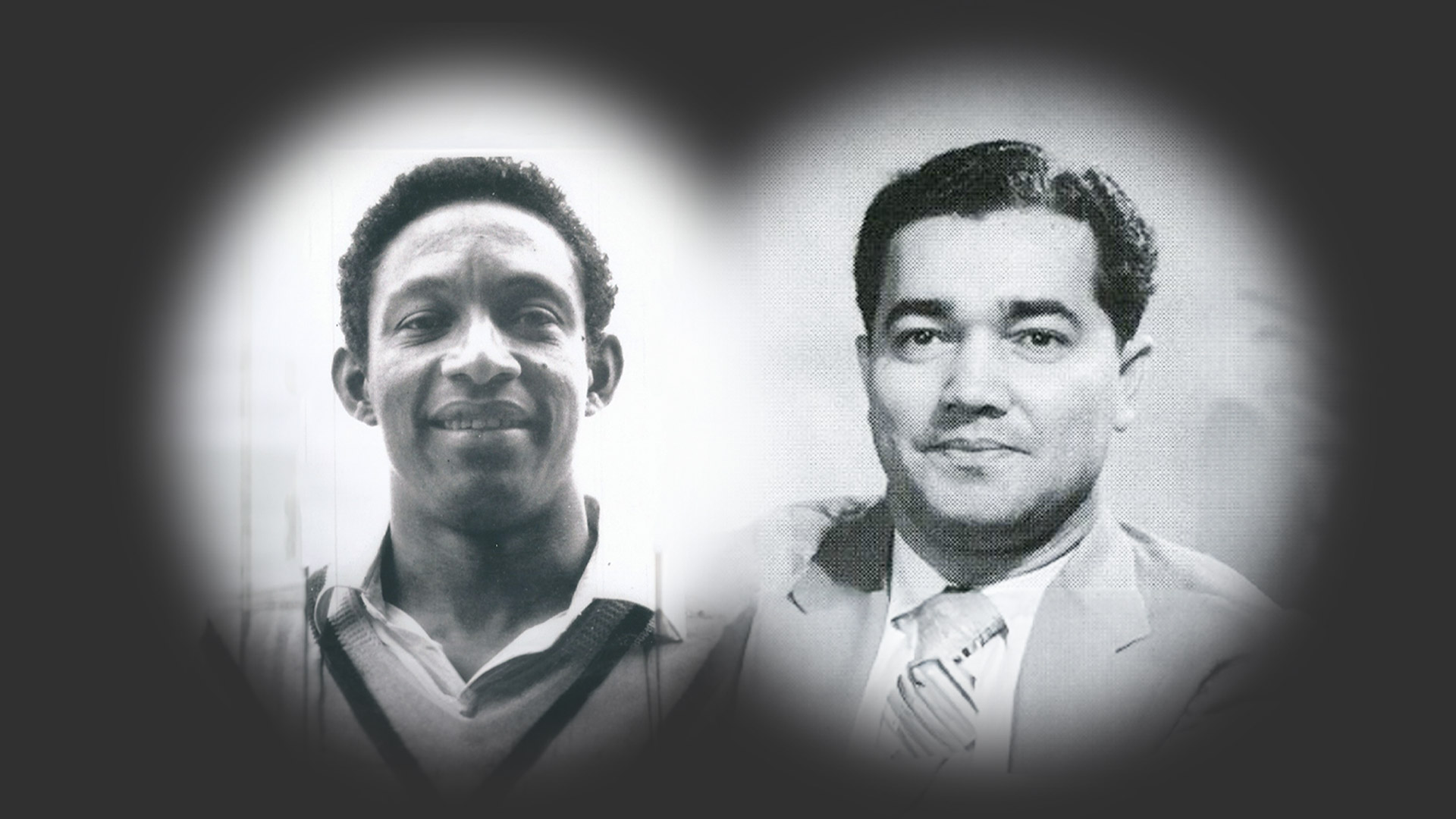It wasn’t until 1946 that Northamptonshire fielded their first two black cricketers, both were remarkable individuals who achieved much away from the cricket field in their later years. To celebrate Black History Month, Club Archivist Andrew Radd has put the spotlight on Bertie Clarke and Ken Ablack.
Northamptonshire’s first overseas player was actually born in the Caribbean, Sydney Gordon Smith. A white Trinidadian, he played for the County between 1907 and 1914 and captained the side immediately before the First World War. Born to a Scottish father and English mother, Smith worked at the Government Works Department in Port-of-Spain before arriving at Wantage Road. He had represented West Indies with success (in the days before their elevation to Test status) and, eventually, settled in New Zealand.
Carlos Bertram ‘Bertie’ Clarke took an unusual path to joining Northamptonshire. After touring England with the West Indies side in 1939, a series where he played in all three Tests and collecting 87 wickets at just under 22 runs apiece on the trip, the leg-spinner from Barbados then studied medicine at Guy’s Hospital in London and became a GP.
During the Second World War he played regularly for the British Empire XI and appeared in the emotional memorial match for Robert Nelson, Northamptonshire’s captain in 1938 and 1939 who was killed in action serving with the Royal Marines. Clarke then turned out for the County under a special qualification in the first two post-war seasons.
He claimed 44 Championship wickets in 1946 and a further 83 in 1947, including 7-120 against Yorkshire at Wantage Road – a performance that earned him his county cap. Batting highlights were comparatively rare, but he hit 86 in a losing cause at Worcester in 1947.
Clarke was one of several amateurs sounded out by the committee about taking on the captaincy of Northamptonshire that summer, but his medical duties prevented him accepting. He made his final appearance for the club in 1949, by which time another leg-spinner, Freddie Brown, was in charge.
After a lengthy break from regular first-class cricket, Clarke helped out Essex in the 1959 and 1960 seasons, and was still wheeling away in club cricket for the BBC (he had broadcast a ‘West Indies Newsletter’ just after the war) at Motspur Park until he was 70 years old. Doctor Clarke’s work for the West Indian community in London was recognised with an OBE in 1983 and he passed away in 1993 at the age of 75.
Trinidadian Ken Ablack achieved greater fame as a cricket commentator than as a player, but after turning out (like Bertie Clarke) in wartime matches he made three first-class appearances for Northamptonshire – twice in 1946 and once in 1949.
A left-arm spinner, he bagged five wickets on Championship debut, helping the County win a tight match against Glamorgan at Rushden, only to endure a tough time (with somewhat bruising figures of 1-111 from 31 overs) when he returned to the side as a one-off against Lancashire three years later.
He worked as a producer with the BBC’s Caribbean Section (also playing cricket for the Corporation and representing the Club Cricket Conference XI), and was the West Indian ‘voice’ on BBC radio during the Test series in England in 1950 and 1957, the latter coinciding with the advent of Test Match Special to broadcast continuous commentary. Ablack shared the microphone that summer with the likes of John Arlott, Rex Alston, E.W. Swanton, Norman Yardley and Gerry Gomez.
Ablack returned home in 1962 and became chairman of Trinidad and Tobago’s national broadcasting service. He died at the age of 91 in 2010.

